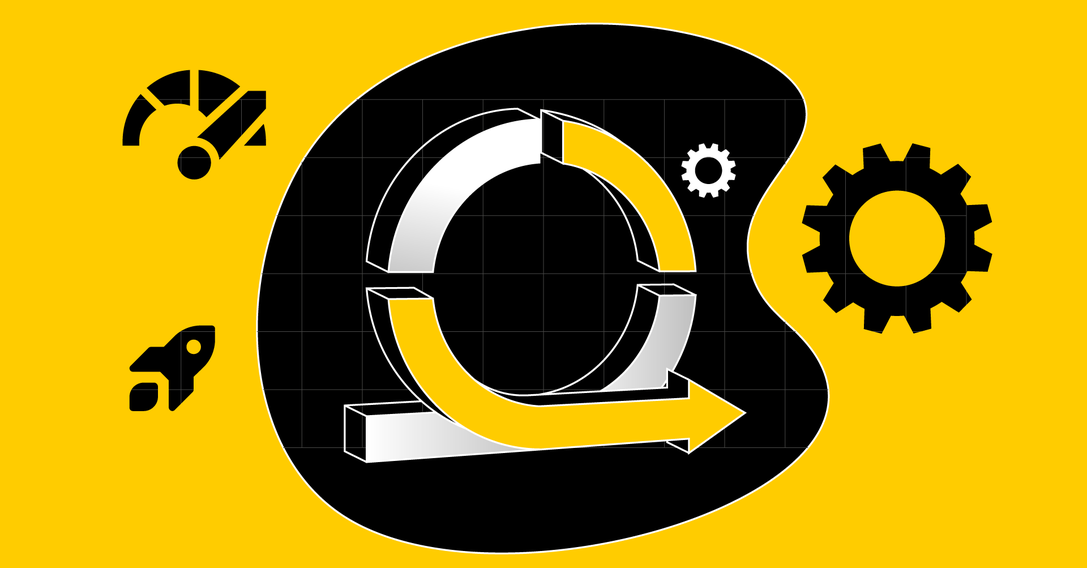4 min
May 9, 2023
Cryptocurrencies & blockchain in Ecommerce
The e-commerce industry is constantly evolving, and with it, customer expectations regarding payments are changing. While traditional payment methods still dominate, cryptocurrencies are dynamically entering digital commerce, becoming not just a trendy addition, but a strategic tool for future-forward businesses.
For the modern online entrepreneur, accepting cryptocurrencies like Bitcoin is much more than just expanding the range of options. Above all, it’s an opportunity to offer customers transactions that are fast, secure, and transparent, without the need to rely on centralized intermediaries. This approach not only attracts a growing group of new technology enthusiasts but, crucially, significantly lowers operational costs and minimizes the risk of fraud often associated with traditional payment gateways. The application of blockchain technology in e-commerce is redefining the rules of the game.
In this article, we will examine why cryptocurrency is not a fleeting trend but a key element that can revolutionize your sales and open the door to global markets.
Listen to the audio version of this article.
What is a cryptocurrency?
A cryptocurrency is a digital currency or token whose value and transactions are secured using cryptography. It is a way of transferring cash into an electronic form within the digital world. Thanks to it, you can make payments for various products and services, and send money to family or friends, without intermediaries. The entire system is based on the blockchain. Unlike traditional online payment gateways, cryptocurrency does not require registration or commission fees.
Who was the creator of Bitcoin?
Bitcoin was created by an individual or a group of people operating under the pseudonym Satoshi Nakamoto. However, Satoshi Nakamoto's identity remains a mystery and is still unknown. In 2008, Satoshi published a 9-page document detailing how the Bitcoin system works, fully utilizing the potential of blockchain technology.
Blockchain technology
Blockchain technology is a decentralized, digital, public, or private ledger that allows transactions to be recorded in a secure and immutable way. Each block introduced into the blockchain contains transaction information as well as information about the previous block, thus creating a "chain" of interconnected blocks.
Blockchain enables the secure and rapid exchange of information and value between various entities, without intermediaries and based on decentralized mechanisms.
Blockchain technology allows for the secure processing of transactions, and its introduction into a payment system can increase transaction security and boost customer trust in an online store.
Blockchain in Poland
Poland is one of the countries leading innovation and development in blockchain. In 2019, the Polish government launched the "Blockchain in Poland" program, which aims to encourage companies to use the technology, promote the solution and attract blockchain investors. In addition, there are several blockchain companies operating in Poland, including Ambrosus and BitBay. Poland is also a member of the European Blockchain Partnership, which ensures that it operates under the general standards and rules related to blockchain.
Benefits of Cryptocurrency Payments:
Payments
Cryptocurrencies can be used by e-commerce customers to make payments for products and services. Transactions using cryptocurrencies are fast and inexpensive, which can attract consumers interested in saving time and costs.
Easy access
Unlike traditional payment methods such as credit cards or bank transfers, cryptocurrency payments allow for easy access to funds worldwide, at any time. All that is needed is an internet-connected device and a crypto wallet. In the future, integration with the Internet of Things will further simplify this process.
Security
Cryptocurrencies are decentralized, meaning there is no central institution that manages them. This makes them more secure than traditional payment methods because they are less susceptible to data tracking and interception. This security is guaranteed by the underlying blockchain technology.
International acceptance
Cryptocurrencies are accepted internationally, meaning they can be used in cross-border transactions. This facilitates international trade and can increase sales for e-commerce entrepreneurs.
No Currency Fees
Cryptocurrency does not require currency conversion, which is often costly and time-consuming. This allows entrepreneurs to save on costs and avoid misunderstandings related to exchange rate differences and bank fees.
The main advantages and disadvantages of using blockchain in e-commerce.
Undoubtedly, blockchain has a lot to offer in the field of electronic commerce. Thanks to it, e-commerce is reaching an entirely new level of customer service. This technology has many advantages, and its use is a revolution in digital commerce. In the context of e-commerce, the most important benefits are:
Increased security in processing and storing sensitive data, including personal data. A decentralized blockchain acts as a secure, distributed database.
Reduced risk of fraudulent transactions.
The ability for the seller and the buyer to control the transaction process without the possibility of modification by third parties.
Reduced sales costs—there is no need for online sellers to have separate systems for inventory, delivery, and sales management.
No commission fees for cryptocurrency payments to banks and payment organizations. This shift has a profound impact on the entire financial market.
The possibility of anonymity, meaning the customer can make an anonymous or near-anonymous purchase.
Faster transaction execution.
The ability to automate business processes. The use of smart contracts allows payments to be automatically released upon fulfillment of conditions.
No limitations on making payments, including cross-border transactions.
The ability to create personalized offers for goods and services thanks to information gathered on the blockchain.
To Sum Up
However, blockchain technology doesn't only have advantages; it also has certain drawbacks. First of all, in its current form, blockchain is a complex technology, meaning there is a shortage of specialists who can work with it. Applications based on this technology are still quite expensive to implement and maintain.
The world of cryptocurrencies and blockchain also encounters social resistance due to conflicting opinions reaching the public. On one hand, there is talk of the risk of losing financial funds if a user loses their private key, as well as concerns about data tracking, storage, and authenticity. It should also be remembered that the high volatility of cryptocurrency prices, sometimes comparable to stock market speculation, poses a risk for entrepreneurs.
It should also be noted that crypto wallets are too complex for everyone to understand. Despite these challenges, the overwhelming benefits offered by the blockchain mean that this platform will continue to be developed and used in various sectors of our market, and not just in e-commerce.




